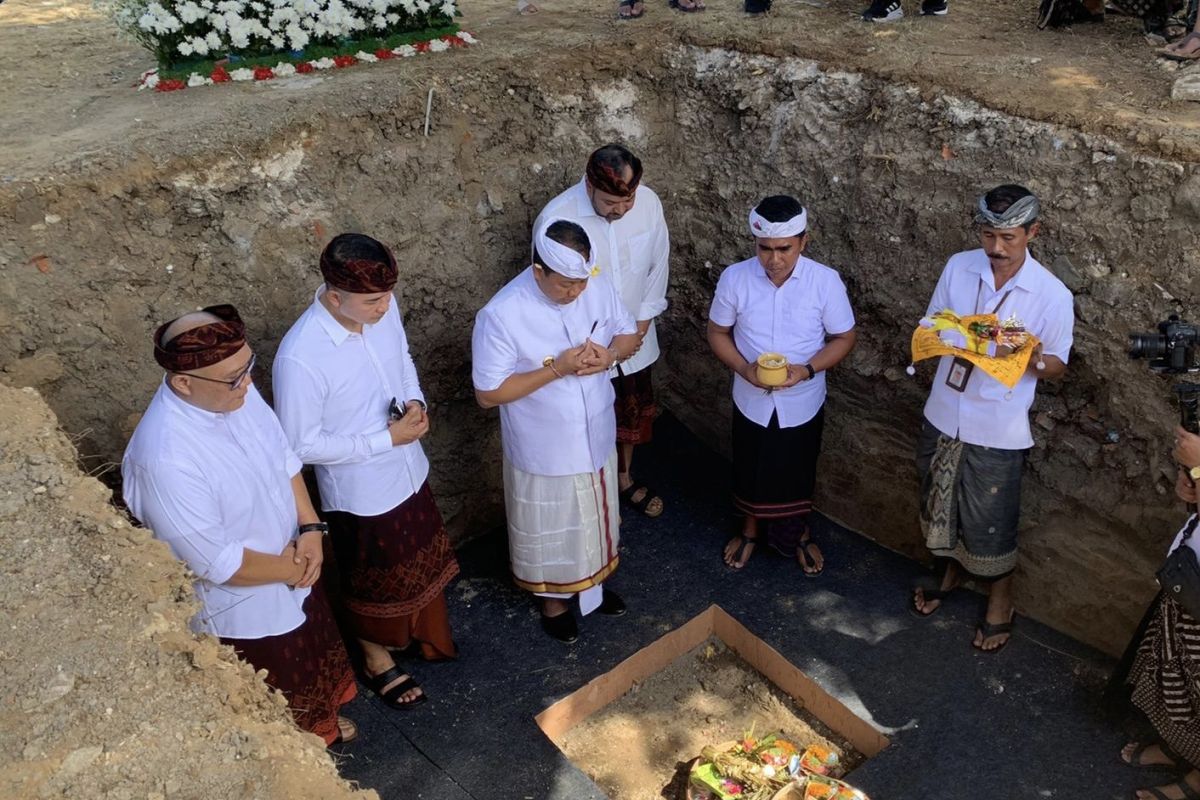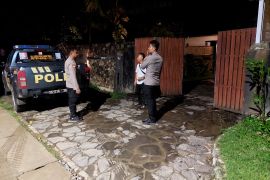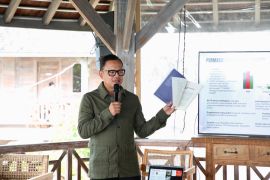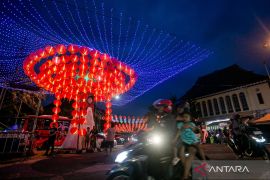While the province's infrastructure has developed significantly over the years, its transportation system has largely remained reliant on private vehicles.
The lack of mass public transportation, combined with the dense flow of traffic due to economic and tourist activities, has led many to choose personal transportation, resulting in road congestion across the island.
Traffic snarls have become a daily occurrence, particularly in popular tourist destinations.
However, a long-awaited solution — a rapid transit railway system — is finally taking shape.
The provincial government has taken swift action this year, moving from a prolonged feasibility study to appointing a region-owned business entity as the initiator of the project.
The entity is actively seeking investors to finance the project, which recently commenced with a groundbreaking ceremony.
Related news: Bali picks investor for US$20 billion Bali Subway project
Bali urban subway
The Island of the Gods is poised to enter a new era of transportation with the development of the Bali Urban Subway.
The modern, underground rail system is expected to provide a much-needed solution to the island's growing traffic problem.
PT Sarana Bali Dwipa Jaya (SBDJ), a region-owned enterprise, has been tasked by the Bali provincial government to carry out this ambitious project, which will be entirely funded by private investors.
In May 2024, the provincial government began seeking investors for the project. Despite the challenges of securing private funding, PT Bumi Indah Prima (BIP) was eventually selected as the investor.
The government chose September 2024 for the groundbreaking ceremony, marking the official start of construction.
According to Ari Askhara, president director of PT SBDJ, the project will be carried out in four phases and connect I Gusti Ngurah Rai Airport to several locations across Bali, including popular spots such as Seminyak, Sanur, and Ubud.
Due to Bali's unique geography, building the train infrastructure above ground was not feasible. Constructing it directly on the ground also involved constraints on land availability. Therefore, the decision was made to build all four routes underground.
This development not only involves the construction of the train infrastructure but also aims to create a complete ecosystem, adding value to Bali's underground space.
The traditional philosophy of Tri Hita Karana, which emphasizes balance between humans, gods, and nature, has guided the government's approach to land use.
By utilizing existing government-owned land for stations, the project will minimize the need to acquire additional land, especially considering the high cost of land in Bali and the potential environmental impact of surface construction.
Following the groundbreaking ceremony in Badung on Wednesday (September 4, 2024), the construction of the train facility was kicked off.
The initial phases of the project will focus on building 16 kilometers and 13.5 km of tracks. The first phase is expected to take longer due to the difficult rocky terrain.
PT Indotek has been appointed as the main contractor. It will work in collaboration with China Railway Construction Corporation (CRCC) and local contractor PT Sinar Bali Bina Karya, a move that aims to optimize the efforts and talents of the Balinese people.
Investors have provided US$10.8 billion in funding for the first two phases and US$9.2 billion for the next two phases of the project.
Related news: Foreign Affairs Ministry facilitates tourism connectivity in Indonesia
Train operation
The Bali Urban Subway project is currently in its initial phase, with construction focused on the station and a 300x50 meter office at Kuta Central Parking.
Ten tunnel boring machines (TBM) will be deployed in April 2025 to undertake the underground work, which will take place 30 meters below ground level.
To avoid disrupting the community, the authorities will collaborate with state-owned water company PDAM to relocate water pipes and encourage people to stop using groundwater.
A feasibility study conducted by a South Korean team has confirmed the safety and durability of the planned construction. The underground rail, which will go twice as deep as the regulatory limit, is guaranteed not to affect the settlements above it.
Given the thorough preparations and agreements between the Bali authority and the central government, the project initiator anticipates that the first phase of the Bali Urban Subway will be completed by 2028 and become immediately operational.
The second phase is expected to be completed in 2031.
The integrated transportation system will feature a double-track system with six carriages, each capable of carrying 40 passengers.
Trains will operate on a 10-minute headway, 24 hours a day.
Ticket prices for the new train system have not been finalized yet, but they are expected to be affordable for tourists, especially since the route will cater to popular tourist destinations.
Tourists may need a credit card to buy tickets, and they can expect to pay between US$35 and US$40 for a weekly pass. Local residents with a Bali ID card may be eligible for free travel.
Bali's investment in a modern subway system marks a significant step forward in enhancing the island's tourism infrastructure.
By providing a reliable, efficient, and convenient mode of transportation, the Bali Urban Subway will offer numerous benefits to both tourists and local residents.
It will alleviate traffic congestion, improve travel times, and reduce stress for visitors.
The subway will also connect various destinations, making it easier for visitors to explore different parts of the island without relying on private transportation.
It will also contribute to reducing carbon emissions and promoting sustainable tourism practices while providing a more comfortable and efficient way for tourists to travel.
Related news: Shuttle buses for anticipating congestion at Bali's airport: Minister
Related news: Support firm Immigration action against unruly tourists: minister
Editor: Tia Mutiasari
Copyright © ANTARA 2024












